Thank you for downloading this Atria Books eBook.
Join our mailing list and get updates on new releases, deals, bonus content and other great books from Atria Books and Simon & Schuster.
C LICK H ERE T O S IGN U P
or visit us online to sign up at
eBookNews.SimonandSchuster.com
We hope you enjoyed reading this Atria Books eBook.
Join our mailing list and get updates on new releases, deals, bonus content and other great books from Atria Books and Simon & Schuster.
C LICK H ERE T O S IGN U P
or visit us online to sign up at
eBookNews.SimonandSchuster.com
NOVELS BY BENILDE LITTLE
Good Hair
The Itch
Acting Out
Who Does She Think She Is?
Contents

An Imprint of Simon & Schuster, Inc.
1230 Avenue of the Americas
New York, NY 10020
www.SimonandSchuster.com
Copyright 2015 by Benilde Little
All rights reserved, including the right to reproduce this book or portions thereof in any form whatsoever. For information, address Atria Books Subsidiary Rights Department, 1230 Avenue of the Americas, New York, NY 10020.
First Atria Books hardcover edition April 2015
 and colophon are trademarks of Simon & Schuster, Inc.
and colophon are trademarks of Simon & Schuster, Inc.
For information about special discounts for bulk purchases, please contact Simon & Schuster Special Sales at 1-866-506-1949 or .
The Simon & Schuster Speakers Bureau can bring authors to your live event. For more information or to book an event, contact the Simon & Schuster Speakers Bureau at 1-866-248-3049 or visit our website at www.simonspeakers.com.
Interior design by Kyoko Watanabe
Jacket Design by Chelsea McGuckin
Jacket Photographs by Peter Hurley
Library of Congress Cataloging-in-Publication Data
Little, Benilde.
Welcome to my breakdown : a memoir / Benilde Little.
pages cm
Summary: A chronicle of clinical depression from a bestselling novelistProvided by publisher.
1. Little, BenildeMental health. 2. NovelistsUnited StatesBiography. 3. Women novelists, AmericanBiography. 4. Depressed personsUnited StatesBiography. I. Title.
PS3562.I78276Z46 2015
813'.54dc23
[B]
2015001624
ISBN 978-1-4767-5195-5
ISBN 978-1-4767-5197-9 (ebook)
An effortless life is a meaningless life.
HA JIN
Prologue

Mom holding me up in our backyard, 1958.
MY MOTHER was gone. I never thought I would survive her death.
I was, in so many ways, her creation. She literally spoke me into being. When she was pregnant with me, she told everyone she was having a girl, and they believed her. This was 1958, when she was in her thirties, and no one had even heard of amniocentesis. Her friends at her job at St. Michaels Medical Center decorated the nurses lounge in pink, and all the baby presents were pink: the jumpers, booties, coats, and hats. I told that doctor, If its a boy, dont even bring him to me, she used to tell me. She had already birthed three sons and was ready to welcome her daughter.
After I arrived, she went to work designing her girl. I would have everything she thought her cherished daughter should have. I took piano and ballet lessons, and wore well-made white shirts with Peter Pan collars and wool plaid jumpers and skirts. I even wore a camel hair coat to my elementary school, which was right across the street from our house, close enough for my mother to watch over me. I was an introspective child, quick to cry, more at ease with my books and dolls than with the rough-and-tumble of the playground. As tough and no-nonsense as my mother could be, she had breathed into me not just life but also the gift of sensitivity. I felt everything too deeply. The gift would become my burden.

My brother Marc, me, and Mom at Easter in Weequahic Park.
For the two years before my mother died, I had been in a midlife malaise made worse by the arrival of menopause and the unrelenting routine of ferrying school-age children while caring for my aging parents. When my mother stopped breathing, I fell deep into a cavern of grief. I missed her with an ache that bore into every cell of my body. I couldnt get out of bed, other than to wake my daughter up for eighth grade, drive my son, a second grader, to school, and slug through walking Charlie, my constant companion in the form of a bichon-poodle mix. My entire body hurt, yet I was numb. When my family came home in the evening, Id move from my bed to the sectional in the basement and watch TV. It didnt matter what was on. I simply wanted the noise.
I had expected to feel grief for the first several months, but then seven months passed, eight, a year, and I still couldnt lift myself out of the pervasive sadness. I didnt know what to do. When I climbed into bed at night, this feeling, this nausea of the soul, as the writer David Foster Wallace described it, clung to me along with my pajamas and woke up in the night before I did. It greeted me as I opened my eyes at two, three, four in the morning, and I would turn to look at my husband, Cliff, lying on the pillow next to mine.
Feeling me stir, Cliff would open his eyes.
Youre going to have to put me away, I would tell him every morning and every night. I cant keep going like this.
Cliff had lost his father to cancer only two months before my mom died, and he was still wrestling with his own grief, but he pushed it away to try and help me deal with mine.
You just miss her, he said, trying to soothe me. Itll pass.
But it didnt.
I made an appointment with a therapist provided by the hospice that had helped care for my mother during her final days. This couldnt be normal grief, I told the grad student sitting in for the psychologist, whod had an emergency and didnt show. The student was empathetic but ineffectual. I was so swamped by sorrow at that point, its possible no one could have reached me. I remembered how Cliff had cried when we got the news about his dad; how he had comforted his mom and helped plan a beautiful memorial service and then eventually went back to work. He was sad, for sure; he had worshipped his dad, but he had remained himself as he dealt with everything, even maintaining his outrageous sense of humor.
I, on the other hand, was most definitely not myself.
Whenever I talked about my needing to be institutionalized, Cliff would respond with his trademark wit. Youll be like Diana Ross in Lady Sings the Blues , with dark sunglasses on in a white bathrobe and a towel around your head, he joked.
He could always make me laugh, but this time, nothing. The Mack trucksized depression refused to move. I had become emotionally unglued. I had officially fallen apart. But what Ive learned on this journey through clinical depression is that my breakdown was actually about me learning how to own my sensitivity and love myself in all of my vulnerability, all my privilege and confusion and loss. This is the story of my mother and the life she dreamed for me. Its also the story of the dank joylessness I fell into after she died, and how one breath at a time I am finding my way through.
Next page

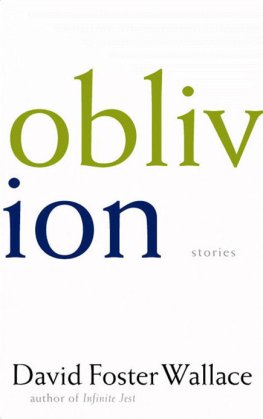
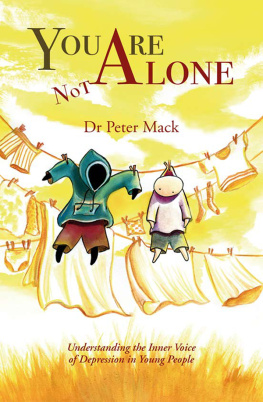
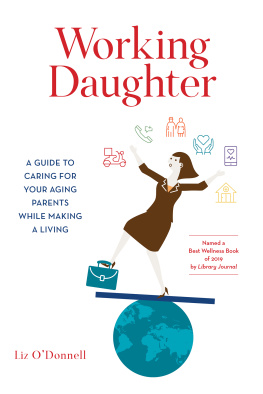
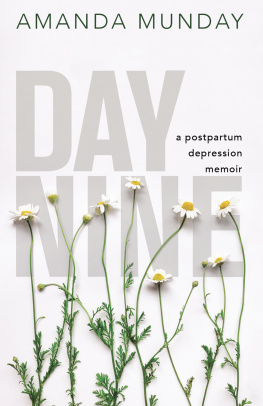
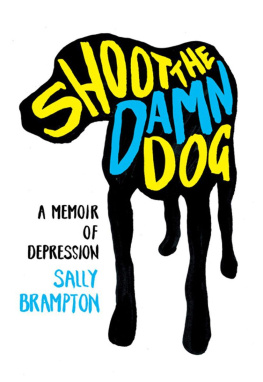
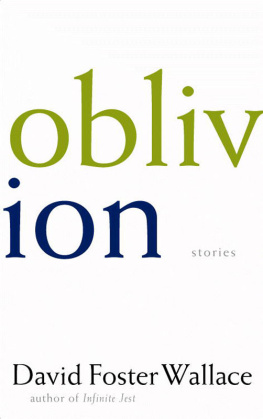


 and colophon are trademarks of Simon & Schuster, Inc.
and colophon are trademarks of Simon & Schuster, Inc.
